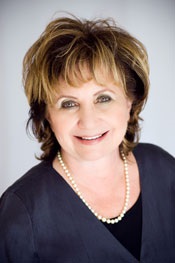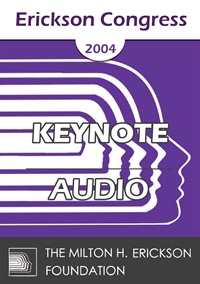IC04 Keynote 01 - The Therapist as Humanist, Social Activist and Systemic Thinker - Cloe Madanes, Lic. Psychol.
- Average Rating:
- Not yet rated
- Topic Areas:
- Keynotes | Psychotherapy | Ericksonian Hypnosis and Therapy Techniques | Managed Care | Systems Theory | Psychopharmacology
- Categories:
- Erickson Congress | Erickson Congress 2004 | Pioneers in Couples and Family Therapy
- Faculty:
- Cloe Madanes, HDL, LIC
- Duration:
- 53:36
- Format:
- Audio Only
- Original Program Date:
- Dec 02, 2004
- License:
- Never Expires.
Description
Description: This keynote traces the shift in psychotherapy from systemic approaches to the rise of managed care and psychopharmacology. It critiques profit-driven models and the overuse of medication, especially in cases involving children removed from families. Emphasizing the importance of family therapy and community involvement, it promotes ethical, value-driven practice and highlights success stories where systemic interventions led to lasting change.
Syllabus Description: From Freud to Erickson to the current practice of psychotherapy, the nature of human problems has remained the same. What has changed is which problems we consider are within the realm of psychotherapy to elucidate. When Erickson introduced the concept of directive therapy, the field changed, not only in terms of how to do therapy, but also in terms of what are the issues a therapist must address. Is there a place for the concept of evil, for the practice of justice, and for the spiritual realm in therapy? What do we know today that we didn't know a hundred years ago? How can we preserve the existence of the therapist as humanist, social activist and systemic thinker?
Educational Objectives:
- Given a patient, outline a humanistic treatment plan.
- To list three methods for working with social violence.
*Sessions may be edited for content and to preserve confidentiality*
Credits
Handouts
| Timestamped Transcript (673.2 KB) | 14 Pages | Available after Purchase |
| Ericksonian Learning Snapshot (248 KB) | 2 Pages | Available after Purchase |
Faculty

Cloe Madanes, HDL, LIC Related Seminars and Products
Cloé Madanes, HDL, LIC, is a world-renowned innovator and teacher of family and strategic therapy and one of the originators of the strategic approach to family therapy. She has authored seven books that are classics in the field: Strategic Family Therapy; Behind the One-Way Mirror; Sex, Love and Violence; The Violence of Men; The Secret Meaning of Money; The Therapist as Humanist, Social Activist and Systemic Thinker; and Relationship Breakthrough. She has presented her work at professional conferences all over the world and has given keynote addresses for The Evolution of Psychotherapy Conference, the American Association of Marriage and Family Therapy; the National Association of Social Workers, The Erickson Foundation, the California Psychological Association and many other national and international conferences. Madanes has won several awards for distinguished contribution to psychology and has counseled outstanding individuals from all walks of life.


